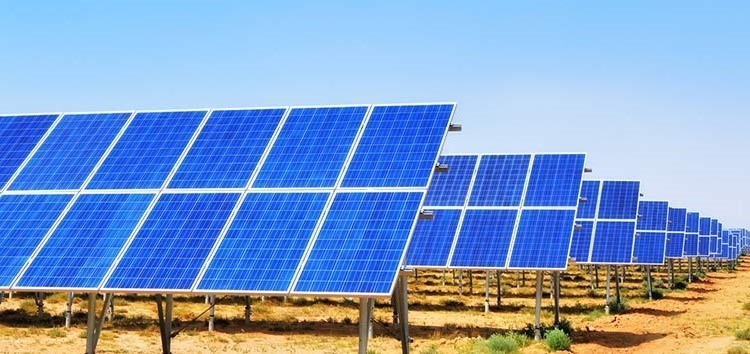The European Bank for Reconstruction and Development (EBRD) announced that its board of directors has approved a $ 500 million credit facility to finance 13 large-scale PV projects in Egypt.
The EBRD said the 13 projects are part of a portfolio of 16 solar projects with combined capacity of 750 MW, which will all be located close to Benban, in Egypt’s northern Aswan region. All the plants are being built under the country’s FIT scheme for large-scale solar and renewables.
“We have been working with the Egyptian authorities since 2014 to help them fulfil their ambitious goals in this area. We are delighted now to be in a position to commit very significant financing to projects, which we expect to start construction before the end of 2017,” said the head of Power and Energy at the EBRD Harry Boyd-Carpenter.
The EBRD announced its plan to allocate $500 million in funding for Egypt‘s fledgling solar energy program, which is targeting the installation of 2 GW of PV capacity over the next few years, in December 2015. At the time, the bank said it was hopeful that its initial tranche of financing can trigger further debt and equity investment from financiers to the tune of around $1.5 billion.
The 2 GW goal will be achieved via the development of 40 individual solar parks of around 50 MW each, as Egypt aims to source 20% of its energy from renewable sources by 2020. The bulk of the planned solar parks will be located on a 1.8 GW site near Benban.
In September 2016, however, the Egyptian government announced an updated phase for its feed-in tariff (FIT) scheme, dramatically reducing the FIT rate for PV projects to US$0.084 and US$0.078/kWh. At the time, several developers said the new rates could bring into question the viability of several projects, although the new FIT level was more in line to what was seen in other regional markets.
Another issue was represented by the fact that the Egyptian Electricity Transmission Company (EETC) was refusing to accept international arbitration for the PV projects that had been agreed in Phase 1 of the FIT program. The EETC was reluctant to accept an arbitration venue in a neutral location, choosing Egypt‘s capital Cairo instead of an international location. As a result, the final Project Agreements have not been signed by the developers, as international lenders considered this non-bankable. In principle the phase 1 projects (those shortlisted in the tender) should have been implemented with the old tariffs (according to what was established when the FiTs scheme was launched back in 2014), but things changed throughout the process.
This content is protected by copyright and may not be reused. If you want to cooperate with us and would like to reuse some of our content, please contact: editors@pv-magazine.com.




3 comments
By submitting this form you agree to pv magazine using your data for the purposes of publishing your comment.
Your personal data will only be disclosed or otherwise transmitted to third parties for the purposes of spam filtering or if this is necessary for technical maintenance of the website. Any other transfer to third parties will not take place unless this is justified on the basis of applicable data protection regulations or if pv magazine is legally obliged to do so.
You may revoke this consent at any time with effect for the future, in which case your personal data will be deleted immediately. Otherwise, your data will be deleted if pv magazine has processed your request or the purpose of data storage is fulfilled.
Further information on data privacy can be found in our Data Protection Policy.